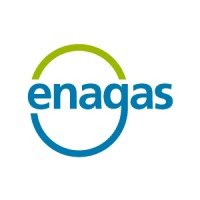Cepsa and the Port of Rotterdam to develop hydrogen corridor in Europe
This agreement will bring about the energy transition in Europe and to ensure secure and independent energy supply.

Cepsa and the Port of Rotterdam established the first green hydrogen corridor between southern and northern Europe, ensuring a green hydrogen supply chain between two of Europe’s main ports, Rotterdam and Algeciras.
The cooperation is part of Rotterdam’s ambition to supply Northwest Europe with 4.6 million tonnes of green hydrogen by 2030
Cepsa plans to export hydrogen produced at its San Roque Energy Park near the Bay of Algeciras, through hydrogen carriers, such as ammonia or methanol, to the Port of Rotterdam. Rotterdam is the most important energy port in Europe, handling 13% of European energy demand, while the Port of Algeciras is first in Spain, fourth in Europe, and an important trade route between Europe and Asia.
With the Dutch Government’s support, and as part of Rotterdam’s Energy Transition plans, the Port Authority and many private companies active in the port area are developing the necessary infrastructure and facilities for the import of green hydrogen and its distribution into Northwest Europe, connecting large industrial centres in the Netherlands, Belgium and Germany using hydrogen pipelines. Cepsa is the main energy company in Algeciras, close to Gibraltar.
This supply of green fuels will help to decarbonize industry and maritime transport in the Bay of Algeciras and Rotterdam and to support the European Union’s RePower EU strategy, which seeks to guarantee Europe’s energy independence and security and stimulate the production of clean energy. The trade lane is expected to be operational by 2027. Cepsa also intends to develop a similar supply chain from its La Rábida Energy Park in Huelva.
Under its Positive Motion strategy, Cepsa aspires to lead green hydrogen production in Spain and Portugal by 2030 with a production capacity of 2GW, half the current target set by the Spanish Government, and to become a major player in Europe. To generate the renewable energy necessary for its production, Cepsa will develop a portfolio of 7 GW of renewable, wind and solar projects alongside working hand in hand with other renewable energy producers in Andalusia to promote the integration of these new plants into the electricity system.
Cepsa’s Energy Parks in Andalusia have access to the most competitive renewable electricity in Europe, along with well-developed industrial infrastructure and direct sea access, presenting optimal conditions for developing large-scale competitive green hydrogen projects.
Maarten Wetselaar, CEO of Cepsa, said, “The opportunity to build the first green hydrogen corridor in Algeciras, the leading energy port in Spain, demonstrates the unique role that Spain, and in particular Andalusia, will play in the energy transition in Europe.”
Allard Castelein, CEO Port of Rotterdam Authority, said, “We expect that in 2050 some 20 Mton of hydrogen will flow through the port, of which only 2 Mton will be produced locally.”
